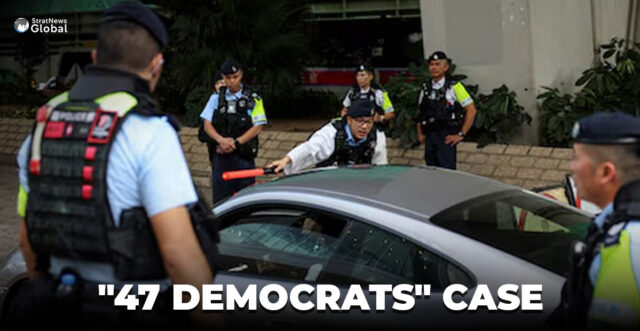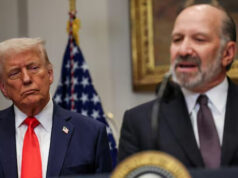An appeal hearing for 12 pro-democracy activists convicted under Hong Kong’s national security law concluded earlier than expected on Thursday, as two defence lawyers argued their clients were denied a fair trial.
The appeal stems from the “47 democrats” case, named for the number of activists who were arrested and charged with conspiracy to commit subversion in 2021.
Forty-five of the defendants were jailed last year for holding an unofficial primary election in July 2020, soon after Beijing imposed a sweeping national security law in response to pro-democracy protests the year before.
Their sentences ranged from four to 10 years. Two were acquitted, while 12 appealed the conviction on July 14.
Judge Jeremy Poon said on Thursday that the judgment would be made within nine months, given the case’s complexity. After that, it would still be possible to seek an appeal to Hong Kong’s highest court.
Government prosecutor Andy Lo said on Thursday that the case involved “an unprecedented conspiracy”.
Erik Shum, representing former lawmakers Helena Wong and Lam Cheuk-ting, said “the court sentencing process was wrong in principle, and hence the ultimate sentence was incorrect and it should be toned down”. Wong was sentenced to 6 years and 6 months, while Lam was sentenced to 6 years and nine months.
Judges Disrupted Cross-Examination
During the four-day hearing, two defence lawyers argued on Wednesday that the three judges who presided over the earlier trial had frequently interrupted some defendants during cross-examination.
“The trial court was interventionist from very early on,” said Robert Pang, a lawyer for unionist Winnie Yu. He said that the court repeatedly disallowed questions on the grounds of irrelevance.
Lawyer Steven Kwan said his client, activist Owen Chow, did not receive a fair trial as “his evidence was disbelieved very early on”. He also said the judges posed 45% of all the questions put to Chow, who was later sentenced to 7 years and 9 months.
Prosecutor Derek Lau said judges had the right to ask questions, noting it was not a jury trial.
“There is no unfairness that can be observed, that is to the prejudice of the defender in these questions,” Lau said.
Prosecutors had said the defendants sought to paralyse the government and force the city’s leader to resign by securing a legislative majority to indiscriminately veto budget proposals.
Under Article 52 of Hong Kong’s mini-constitution, the Basic Law, the chief executive must step down if the legislature twice rejects the government’s budget.
Lawyer Trevor Beel, representing activist Gwyneth Ho, said on Wednesday that legislators had a duty to use whatever legitimate means to negotiate with the government and that the Basic Law allows for a budget not to be passed.
Hong Kong was handed back to China by Britain in 1997 with a promise of freedom and autonomy under the “one country, two systems” framework, and eventual universal suffrage under the Basic Law.
If Ho wanted to achieve dual universal suffrage and an effective legislature, then it “was not radical, and this is not against the principle of one country, two systems,” Beel said.
(With inputs from Reuters)





